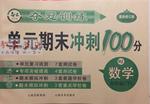题目内容
One day a famous actor had just got into the train with all his luggage when a young man came and 31 down in the seat opposite him. The young man took out a 32 and began to read it, 33 the actor tried to get some 34 in his corner of the carriage.
When he opened his eyes, he 35 that the young man was looking at him with his 36 open, his book forgotten. The actor shut his eyes and tried to sleep again, 37 every time he opened them, the young man was looking at him with the same excited look .At last, he gave up the attempt(企图) to sleep, took out a newspaper, put it 38 in front of him and began to read. The young man tried several times to get into conversation with the actor, but 39 .
After a long period of silence the young man said again, “I’m George P. Anderson of Willington, Vermont.” This time the actor put his 40 down and said, “So am I.” That was the end of the conversation.
31.A. lay B. sat C. looked D. got
32.A. newspaper B. magazine C. book D. letter
33.A. when B. because C. as D. while
34.A. drink B. help C. food D. sleep
35.A. found B. thought C. felt D. expected
36.A. book B. mouth C. arms D. shirt
37.A. but B. therefore C. so D. however
38.A. away B. up C. down D. out
39.A. failed B. succeeded C. missed D. refused
40.A. paper B. luggage C. feet D. hands
31-35 BCDDA 36-40 BABAA

 夺冠训练单元期末冲刺100分系列答案
夺冠训练单元期末冲刺100分系列答案I don’t want to talk about being a woman scientist again. There was a time in my life when people asked constantly for stories about what it’s like to work in a field dominated (controlled) by men. I was never very good at telling those stories because truthfully I never found them interesting. What I do find interesting is the origin of the universe, the shape of space, time and the nature of black holes.
At 19, when I began studying astrophysics(天体物理学), it did not bother me in the least to be the only woman in the classroom. But while earning my Ph.D. at MIT and then as a post-doctor doing space research, the issue started to bother me. My every achievement—jobs, research papers, awards—was viewed through the lens (镜片) of gender (性别) politics. So were my failures. Sometimes, when I was pushed into an argument on left brain versus (相对于) right brain, or nature versus nurture (培育), I would instantly fight fiercely on my behalf and all womankind.
Then one day a few years ago, out of my mouth came a sentence that would eventually become my reply to any and all provocations (挑衅) : I don’t talk about that anymore. It took me 10 years to get back the confidence I had at 19 and to realize that I didn’t want to deal with gender issues. Why should curing sexism be yet another terrible burden on every female scientist? After all, I don’t study sociology or political theory.
Today I research and teach at Barnard, a women’s college in New York City. Recently, someone asked me how many of the 45 students in my class were women. You cannot imagine my satisfaction at being able to answer, 45. I know some of my students worry how they will manage their scientific research and a desire for children. And I don’t dismiss those concerns. Still, I don’t tell them “war” stories. Instead, I have given them this: the visual of their physics professor heavily pregnant doing physics experiments. And in turn they have given me the image of 45 women driven by a love of science. And that’s a sight worth talking about.
【小题1】Why doesn’t the author want to talk about being a woman scientist again?
| A.She is fed up with the issue of gender discrimination (歧视). |
| B.She feels unhappy working in male-dominated fields. |
| C.She is not good at telling stories of the kind. |
| D.She finds space research more important. |
| A.the burden she bears in a male-dominated society |
| B.her involvement in gender politics |
| C.her over-confidence as a female astrophysicist |
| D.the very fact that she is a woman |
A. Lack of confidence in succeeding in space science.
B. Unfair accusations from both inside and outside her circle.
C. People’s fixed attitude toward female scientists.
D. Widespread misconceptions about nature and nurtured.
【小题4】What does the image the author presents to her students suggest?
| A.Women students needn’t have the concerns of her generation. |
| B.Women can balance a career in science and having a family. |
| C.Women have more barriers on their way to academic success. |
| D.Women now have fewer problems pursuing a science career. |